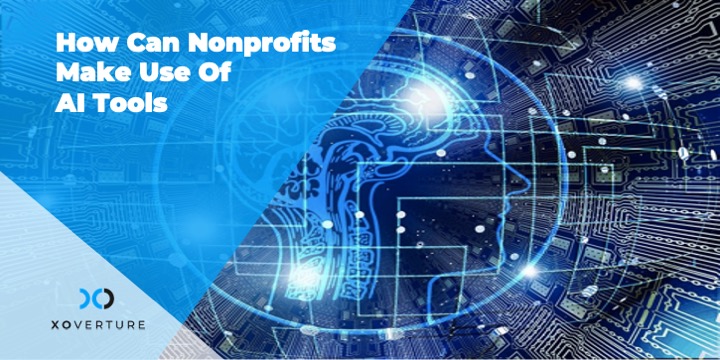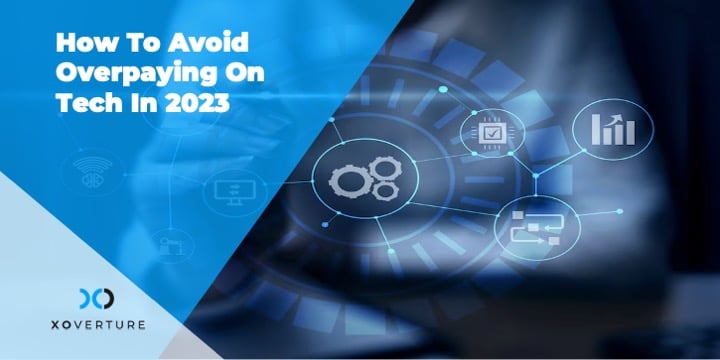Nonprofit organizations are often under pressure to do more with less. With limited resources and a growing demand for services, nonprofits are constantly looking for ways to increase their efficiency and effectiveness. The best solutions that are gaining traction in the nonprofit sector is the use of AI tools and hiring IT Services for Nonprofits.
AI tools have the potential to help nonprofits automate routine tasks, streamline operations, and make data-driven decisions. Below are six ways that nonprofits can make use of AI tools. But first, let’s start with understanding what AI is:
What Is AI?
Artificial Intelligence (AI) refers to a machine’s ability to demonstrate human-like capabilities, such as creativity, learning, and the ability to reason.
AI gives technical systems the ability to comprehend their surroundings, deal with what they perceive, solve issues, and take action to reach a particular goal. The computer receives information that has already been prepared or collected using its own sensors, like a camera, processes it, and then acts. By analyzing the results of prior actions and acting autonomously, AI systems can change their behavior to a certain extent.
Some AI technologies have been existing for more than 50 years, but recent major breakthroughs in AI have been made possible by improvements in computing power, the accessibility of massive quantities of data, and new algorithms.
The digital transformation of society is believed to be largely dependent on artificial intelligence. Although enormous changes are anticipated from future applications, AI is already prevalent in our daily lives.
How Can Nonprofits Make Use of AI Tools
Boost Fundraising Efforts
Nonprofits can use AI to analyze donor data and identify patterns and trends. This can help nonprofits personalize their fundraising efforts and increase donor engagement and retention. For example, AI tools can analyze donor giving history to identify patterns in giving amounts or frequency. Nonprofits can then use this information to tailor their fundraising appeals to each donor’s giving behavior.
Improve Program Delivery
AI tools can help nonprofits optimize program delivery by analyzing data on program outcomes, participant demographics, and other factors. Nonprofits can use this information to make data-driven decisions and improve program effectiveness. For example, AI tools can analyze data on participant outcomes to identify factors that contribute to program success. Nonprofits can then use this information to make programmatic changes that improve outcomes.
Help In Volunteer Matching
Nonprofits can use AI to match volunteers with opportunities that best suit their skills and interests. This can improve volunteer engagement and retention and help nonprofits make better use of their volunteer resources. For example, AI tools can analyze volunteer profiles to identify the skills and interests of each volunteer. Nonprofits can then match volunteers with opportunities that align with their skills and interests.
Chatbots
Nonprofits can use AI-powered chatbots to provide support and information to their constituents. Chatbots can answer frequently asked questions, provide resources and referrals, and even provide emotional support. This can help nonprofits provide faster and more efficient support to their constituents. For example, a nonprofit that provides mental health services could use a chatbot to provide immediate emotional support to individuals in crisis.
Fraud Detection
Nonprofits can use AI to detect and prevent fraud in their financial transactions. AI can analyze transaction data in real time and identify suspicious patterns or behaviors. This can help nonprofits reduce the risk of financial losses due to fraud. For example, AI tools can analyze financial transactions to identify transactions that are outside of normal patterns.
Predictive Analytics
Nonprofits can use AI-powered predictive analytics to identify potential donors, volunteers, or program participants. This can help nonprofits identify and target those who are most likely to support their cause. For example, AI tools can analyze data on donor demographics and give a history to identify individuals who are likely to make a donation.
Bottom Line
While AI tools have the potential to help nonprofits achieve their goals, it’s important to consider the ethical implications of using AI. Nonprofits must ensure that their use of AI aligns with their mission and values and that they are using AI in a way that is transparent and accountable.
In conclusion, AI tools can be a powerful tools for nonprofits. From fundraising to program delivery, AI can help nonprofits increase their efficiency and effectiveness. However, nonprofits must approach the use of AI with caution and ensure that their use of AI is aligned with their mission and values. By doing so, nonprofits can harness the power of AI to achieve their goals and make a positive impact on the world.




